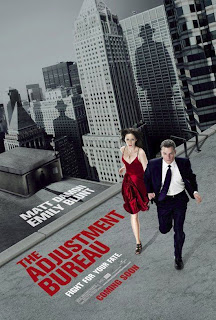When it's over, some of the images linger in my mind as a reminder of how some people are forced to live as well as how courage can take many forms. Without giving away too much of the plot, some images that stayed with me are the swamp scene, the children jumping on the trampoline, the children learning to shoot a rifle, skinning the squirrel, and delivering the "goods" to the sheriff's office. Winter's Bone doesn't follow the conventional story structure. It doesn't have a beginning, middle, and end. It's a snapshot of the middle spanning about a week's time frame. Newcomer Jennifer Lawrence gives a powerful performance as Ree, a 17 year old girl who must find her drug dealing father in time before the family home is taken away by the court. Her search for answers lead her down a path of violence and brutality, and she must find a way to survive while caring for her two siblings as well as her unresponsive mother. I found myself captivated by Ree's character and her unflinching courage to save and protect her family. The film shows how much we can endure as individuals when our livelihood is threatened and the people we love are at risk of being torn away from us. There's nothing glamourous or uplifting about this film. It's bleak, depressing, and completely realistic in its depiction of the corrupt and poor living in rural Missouri.
My rating: 4.5 out of 5
































